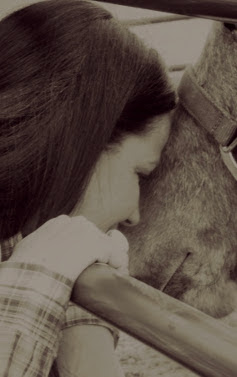 With increasing age horsemen often hear people ask, “Are you still riding?” The other question that you will hear is, “Do you still have THAT horse?”
With increasing age horsemen often hear people ask, “Are you still riding?” The other question that you will hear is, “Do you still have THAT horse?”
Some people (horsemen or not) believe that you need to keep updating to a new horse, just like you regularly update to a newer model car. Personally, I have never held to that philosophy. I expect my cars and trucks to last to a minimum of 200,000 miles, and I ride my horses for as long as I am fortunate to have them in good health. Hopefully that will be well over 20 or even 30 years.
Are there any good reasons to get a new horse every few years — yes! If finances, location, or available time limit you to owning only one horse, then it may be reasonable to think about changing horses regularly.
If you are still working on your riding skills, you may need to find a new horse or a series of new horses as your talents progress. There are many good riders who could do better in the show ring if they were willing to move up to a better horse.
Sometimes it is sentiment that makes you keep a horse you love, even though you know you have outgrown him. Because riding is passion that we follow for our own very personal reasons, no one should argue with you on that choice.
Unfortunately, the choice does not get easier as the years go by. If you cannot bring yourself to part with a horse that is your best friend, but he is growing older and is able to do less while you are still ready to move forward with your riding, there are options.
If you are limited to owning only one horse, why not consider leasing. If the leases are only for one show season, or one year, it gives you a chance to try something new, and see if you are ready to move on. That leased horse could be just one in a series that helps you learn many new things before you finally settle into the path that you want to stick with.
At the same time, seeing your good older horse go to someone who is taking good care of him and loving him just as much as you do is a wonderful benefit — but there are cautions. If you expect to micromanage your horse’s life while he is being leased this may not be for you. Part of leasing a horse is the idea that you are letting go — if not completely. A sale is a clean break. If you sell your horse, you have no say in how he is treated or what happens to him. Knowing that is what makes it so hard.
A lease should be as close to a sale as possible in that you relinquish your control of the horse. The advantage is that you may be able to let go slowly. If the horse you lease out is staying in your barn, you can keep an eye on how he is treated and be available to help if you are asked. If you see things going very badly, you may be able to intervene but hopefully that will not be necessary.
There are always horror stories of leased horses that come back starved or injured, but that is not the norm. There are many things that can go wrong, which is why you need references you can trust and a well-written lease agreement. That will protect you and your horse, but nothing can prevent every eventuality. If you are going to worry excessively about your horse, then leasing him out is not for you.
What leasing will do is help you ease your way through making the decision to go ahead and sell your horse — or not.
If you find yourself thinking of your old horse less often and thinking of your new horse more, it will be easier to let go. If it turns out that your horse is doing very well with his new rider that makes it even better. This could give you the distance you need to make a complete break and find the resolve to sell your horse.
During the lease process, you may find that you do not really want to let your older horse go. Maybe you just need a break for a year so that you can try a new division with a new horse, or maybe you just need time to work on a horse with new challenges so you can master more skills. After you have that experience under your belt you can come back to your old horse and thoroughly enjoy him, knowing that you have not missed out on what might have been.



